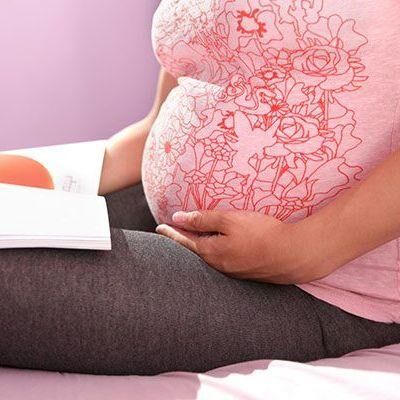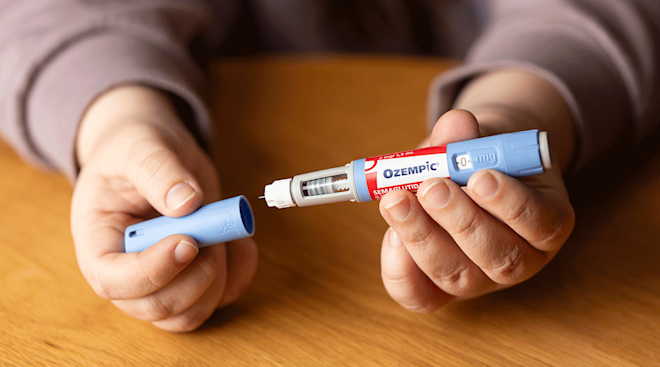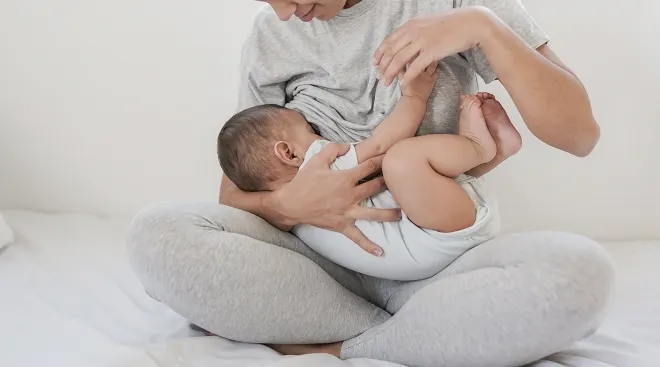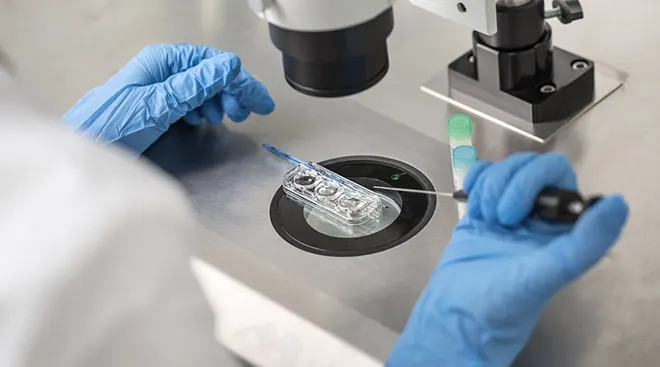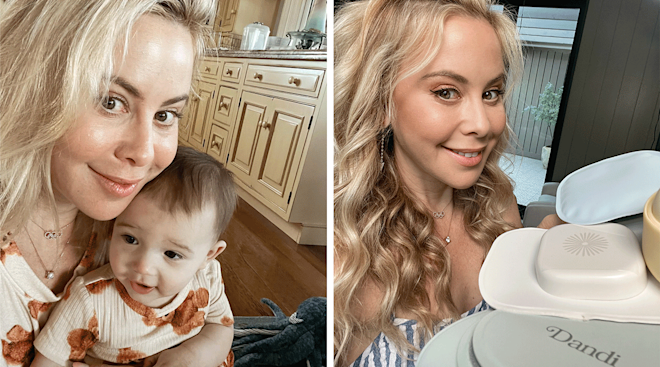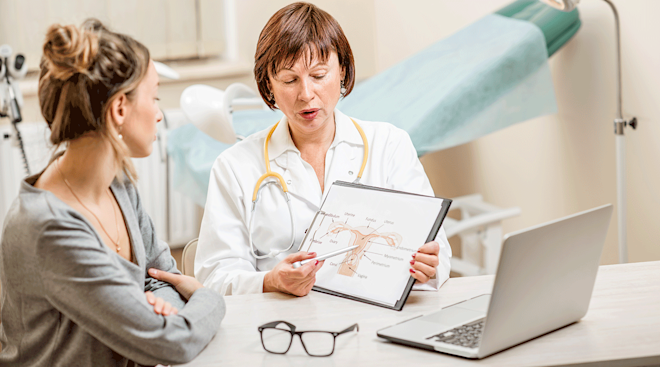Can You Get Pregnant During Perimenopause?
Perimenopause—aka the body’s natural transition to menopause—is finally getting the attention it deserves. During this phase of life, women start undergoing major hormonal changes, most notably a decrease in estrogen, causing their menstrual cycles to become more unpredictable, according to Cleveland Clinic. It’s about time perimenopause is more widely discussed, since the symptoms can be confusing and disruptive, going beyond hot flashes to itchiness, joint pain and more.
A lot of people have questions about pregnancy during perimenopause, which often overlaps with advanced maternal age: The transition typically starts in your 40s, but can range from the 30s to the early 50s, lasting on average seven to 10 years, says Alex Robles, MD, a reproductive endocrinologist at Columbia University Fertility Center.
So, can you get pregnant during perimenopause? (Spoiler: Yes!) And what else should you know about perimenopause and fertility? Read on for the answers.
Pregnancy during perimenopause is entirely possible, says Robles. If you’re having your period, you’re likely still ovulating, he explains. “However, ovulation will become less frequent and more unpredictable during perimenopause, and egg quality will begin to also decrease as a woman ages,” he adds.
The irregularity of menstrual cycles that typically starts in perimenopause is because of anovulation, explains Christie Messenger, MD, FACOG, an ob-gyn with a focus in reproductive healthcare at New York University and member of Ritual’s Scientific Advisory Board. “Anovulation means that you’re not releasing an egg that month and therefore, cannot conceive,” she says. “The reduction of ovulatory cycles in a given year decreases the number of opportunities that you have to conceive in that year.”
Again, while your fertility starts to decline during perimenopause, it’s still entirely possible to get pregnant. Wondering how you can boost your fertility during perimenopause? “There isn’t a way to ‘increase’ your fertility,” says Messenger. “However, the best way to prevent a more rapid decline in fertility is to maintain as healthy of a lifestyle as possible. Keep a balanced diet, get plenty of exercise, take any medications and/or supplements that your doctors recommend, and avoid any unhealthy habits, such as excessive alcohol or any drugs.”
And if you’re not interested in pregnancy during perimenopause, you still need an effective form of contraception, Messenger adds.
If you’re looking to get pregnant during perimenopause, you should speak to your ob-gyn or fertility specialist, says Messenger. It may be time to start a conversation about fertility treatments, adds Sherry Ross, MD, an ob-gyn, author and co-founder of Oneself Intimate Skin Care and the Women’s Health & Wellness School on the MprooV app. “If you’re over 40 years old and have irregular periods, seeing a fertility specialist is recommended,” she says. “Ovulation-stimulating medications, donor eggs and in-vitro fertilization (IVF) may be needed to conceive and carry a healthy baby to term.”
In general, The American College of Obstetricians and Gynecologists (ACOG) recommends that if you’re between 35 and 40, you should reach out to your doctor if you haven’t conceived after six months. If you’re over 40, ACOG recommends talking to your provider right away.
Frequently Asked Questions
When does perimenopause start?
Perimenopause typically starts in your 40s, experts say. However, the “normal” range is wide: It can start as early as your mid-30s and as late as your mid-50s, says Cleveland Clinic. The age at which your mother entered menopause could be a good predictor of when your final period will be.
How long does perimenopause last?
The length of perimenopause varies, but it can last for up to 10 years, says Ross.
Can I get a test for perimenopause?
While there’s no one test for perimenopause, your doctor can test your FSH (follicular-stimulating hormone) level to see if perimenopause is beginning, Cleveland Clinic says. However, your hormones can fluctuate a lot during perimenopause, making testing less reliable. In general, your provider can determine that you’re in perimenopause based on your physical exam, as well as symptoms, age and medical history.
What are the first signs of perimenopause?
The first sign of perimenopause is typically a disruption in your menstrual cycle, according to Franciscan Health. For example, if your cycle has always been 28 days, your period could come as early as 21 or as late as 35 days. You might also start skipping periods entirely. And, your periods might become heavier or lighter than usual, according to Cleveland Clinic.
What are the symptoms of perimenopause?
Symptoms of perimenopause can include, according to Ross:
- Irregular periods
- Hot flashes
- Night sweats
- Depression
- Anxiety
- Fatigue
- Brain fog
- Vaginal dryness
- Weight gain
- Low libido
- Heart palpitations
- Joint pain
- Frozen shoulder
- Itchy and sensitive skin
- Ringing in the ears
- Electric shock sensations
- Gum disease problems
- Acne
- Urinary tract infections
- Burning mouth
Of course, some of these symptoms can overlap with other conditions so it’s important to see your provider if you’re concerned. “During this time there are hormonal, physical and psychological changes happening that are completely disruptive to your life,” says Ross. “Consulting with a healthcare provider who treats menopause is recommended to be given personalized care and safe treatment options.”
Messenger adds that not everyone experiences all of these symptoms—and that some people have minimal symptoms.
Can you get pregnant after menopause?
“A woman is considered to be in menopause when she hasn’t had a menstrual cycle or period for 12 months in a row,” says Sara Shihab, MD, a women’s health internist specializing in sexual health and menopause at Mayo Clinic in Phoenix. “At that point, it’s rare and highly unlikely for a woman to become pregnant. Still, it’s highly recommended that women consult with their healthcare team on when is best to stop any contraceptive methods.”
While perimenopause marks the beginning of the end of your reproductive years, it’s still possible to get pregnant during this life stage. Make sure to speak with your provider about your options.
Please note: The Bump and the materials and information it contains are not intended to, and do not constitute, medical or other health advice or diagnosis and should not be used as such. You should always consult with a qualified physician or health professional about your specific circumstances.
Plus, more from The Bump:
Christie Messenger, MD, FACOG, is an ob-gyn with a focus in reproductive healthcare at New York University and a member of Ritual's Scientific Advisory Board. With over a decade in the field, Messenger has previously worked with several underserved populations in New York City and most recently comes from a private practice. She completed her residency at Mt. Sinai Hospital, fulfilling a lifelong dream of living and working in Manhattan. She earned her medical degree from the University of Missouri-Columbia.
Alex Robles, MD, is a reproductive endocrinology and infertility specialist at Columbia University Fertility Center. He earned his medical degree from Weill Cornell Medical College in New York City.
Sherry Ross, MD, is an ob-gyn and women’s health expert at Providence Saint John’s Health Center in Santa Monica, California. She’s the author of She-ology: The Definitive Guide to Women’s Intimate Health. Period. and She-ology, the She-quel: Let's Continue the Conversation. She’s also the co-founder of Oneself Intimate Skin Care and the Women's Health & Wellness School on the MprooV app. She received her medical degree from New York Medical College.
Sara Shihab, MD, is a women’s health internist specializing in sexual health and menopause at Mayo Clinic in Phoenix. She earned her medical degree from Al-Nahrain University School of Medicine in Baghdad, Iraq.
Cleveland Clinic, Perimenopause, August 2024
Cleveland Clinic, Anovulation, February 2024
American College of Obstetricians and Gynecologists, Evaluating Infertility, August 2022
Franciscan Health, First Signs of Perimenopause, January 2023
Learn how we ensure the accuracy of our content through our editorial and medical review process.
Navigate forward to interact with the calendar and select a date. Press the question mark key to get the keyboard shortcuts for changing dates.




































